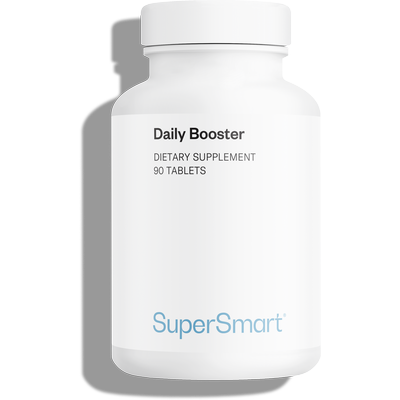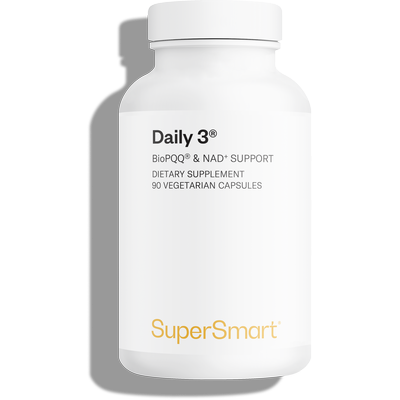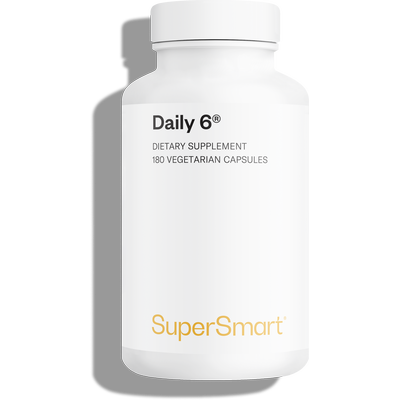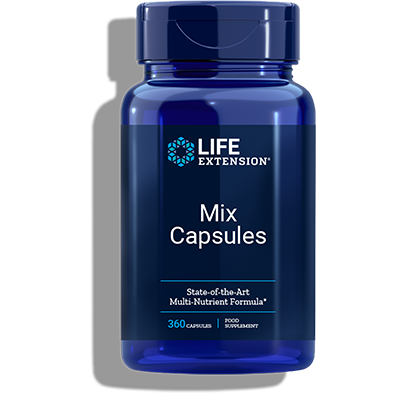16-02-2016
Essential multivitamins
 Numerous studies in recent years have suggested that vitamins and supplements have no beneficial effect on your health. Some researchers have gone as far as to warn that popping them may be harmful.
Numerous studies in recent years have suggested that vitamins and supplements have no beneficial effect on your health. Some researchers have gone as far as to warn that popping them may be harmful.
But the fact is that most of us cannot get the vitamins and minerals we need from food alone, and multivitamins are vital to bridging that gap. According to a study published in the January 2015 edition of the Journal of the American College of Nutrition, roughly 40 percent of adults are deficient in vitamin A, C, D, E, calcium and magnesium. These findings suggest many people may not even have the nutrient levels they need to stave off disease— let alone thrive and live in optimal health. As I see it, everyone needs a multivitamin for disease prevention, and new research agrees.
Those of us whoare well-informed and fortunate enough to be able to do so, make every effort to follow a varied, balanced diet and live a healthy lifestyle. Unfortunately, years of agricultural soil impoverishment, along with the use of fertilisers and certain farming techniques, have meant that we do not get as many nutrients from our diet as we should.
Soil impoverished by agriculture
Statistics published at the United Nations Earth Summit in 1992 suggest that the average percentage of mineral impoverishment in soil reached 85% in North America and 72% in Europe (according to a comparison of soil composition with that of 1936).In 2004,1, a study examined the harvests of 43 kitchen-gardens. It looked at thirteen nutrients, comparing results from 1950 with those collected in 1999. Six of the 13 nutrients showed a statistically significant decline,with researchers underlining the differencesin production and nutrient content. Even organic, pesticide-free production cannot provide nutrients if they're not in the soil.
Multivitamins, the cornerstone of good nutrition
Linus Pauling (two time Nobel prize winner) stated to the 74th Congress of the US that ”every ailment, every sickness and every disease can be traced back to an organic trace mineral deficiency. Since there is no immediate possibility of restoringthe nutritional content of food in the pastto today's diets, and in view of the deteriorations in healthwe see throughout the world, the multivitamin must maintain its place as the cornerstone of all nutrition regimes.”Recommending a multivitamin makes economic sense
For Dr Jeffrey Blumberg, Director of the Antioxidants Research Laboratory at the USDA Jean Mayer Research Centre for Human Nutrition at Tufts University : « Healthcare has become so expensive. How can we reduce healthcare costs? Well, everyone understands that preventing disease in the first place is cheaper than trying to treat it once it's developed. I think it's a very short step to realising that nutrition is of critical importance here. And nutrition isn't just about calories. These days, everyone is worried about obesity which certainly does increase the risk of a number of chronic diseases. At some point, governments will have to acknowledge that recommending a multivitamin is a genuinely low cost option ».A multivitamin : the best way of achieving optimal health and metabolic function
As there is no immediate solution to restoring former mineral levels to our soil, supplementation has become a simple necessity.Dr Jonathan Wright, MD, one of the world's leading experts in nutritional medicine, is quite specific on this subject. He offers two strategies for achieving optimal nutrition :
1. Make sure you choose parents, grandparents and great-grandparents whose lifelong dietsconsisted entirely of organic wholefoods, with 100% of their protein coming from free range meat andunfarmed fish.
Why? Because studies have shown that feeding mothers of animals a nutrient-deficient diet can lead to impaired immunity and other problems that can be seen three generations later, even if the subsequent generations themselves consume a highly-nutritious (but unsupplemented) diet. So, even with the perfect' diet, if our mothers, grandmothers or great-grandmothers were nutrient-deficient, we may still have supplement-sensitive health problemsthat resurface a generation or more later.
2. Go back to a time when all food wasorganic, when it came from free range animals and unfarmed fish, and was available in sufficient quantities and varieties to ensure a healthy life .
Why? Because we know that for some years now, farming land throughout the world has been lacking in trace minerals. What's more, fertilisers (nitrates, phosphates and potassium) do not contain all the elements necessary for optimal plant health. We also know that herbicides, pesticides and other agricultural chemicals are detrimental to optimal health. Much of our food is processed and refined, with the loss of important nutrients, and/or the unhealthy addition of sugar, salt, trans-fatty acids and other unwelcome additives. Recently, genetically-modified (GM) foods have also been introduced to our diet and animal experiments have already shown that they can cause disease and death.
Dr Jonathan Wright concludes that, as his first two strategies are impossible to adopt, it is essential to take a supplement that combines vitamins and minerals to give yourself the best possible chance of optimal health and metabolic function.
Multivitamins preserve telomeres
The benefits of multivitamin supplements go far beyond merely compensating for shortfalls in our diet - they can genuinely help preserve life. Dr Honglei Chen, Head of the Ageing and Neuroepidemiology Group at the National Institute of Environmental Health Sciences, has shown that the use of multivitamins is associated with longer telomeresin women. Telomeres- present at the ends of chromosomes -shorten with each cell division; without telomeres, cells can no longer divide. In other words, the longer the telomere, the longer the cell's life. So taking multivitamins may actually slow down the ageing process.Chen's study 2 analysed data from 586 early participants in the Sister Study, an ongoing prospective cohort study of healthy sisters of breast cancerpatients. Dr Chen observed that those subjects who took multivitamins had telomeres that wereon average 5.1% longer. This corresponds to a reduction in age-related telomere loss of around 9.8 years. The greatest benefit was seen in those who had been taking multivitamins long-term (over 5 years). Interestingly, micronutrient intake from foods was generally not related to telomere length, except for vitamins C and E
The advantages of long-term multivitamin supplementation vs sporadic use has been demonstrated in a number of studies. In 2009, a study showed that regular, long-term (10+ years) use of multivitamins and vitamin E was associated with a 16-28% reduction in risk of death from cardiovascular disease. In another study3 from 2003, looking at multivitamin use and colorectal cancer, Eric J Jacobs concluded that long-term, rather than recent, use of multivitamin supplements had a beneficial effect on risk of colorectal cancer.
Multiple benefits
A Swedish4 study showed that taking a multivitamin supplement long-term, may translate to a 40% lower risk of heart attack. Researchers followed 34,000 women aged 49 or over, for 10 years. They stressed that duration of supplementation was an important factor in the protective effect provided. Women who had taken a multivitamin for at least five years had an 18% lower risk, while the percentage rose to 40% in those who had supplemented for 10 years.Multivitamins are not just beneficial to physical well-being. One double-blind, placebo-controlled, randomised study, involving 215 healthy males aged 30-55, showed that a multivitamin and mineral supplement could improve mood and mental performance, and reduce stress and fatigue. Commenting on the results, lead researcher David Kennedy said :«The assumption was made here that the men tested enjoyed typical nutritional status. However, the very fact of being able to improve mood, ratings of mental health and vigour and aspects of task performance by simple supplementation with B vitamins, vitamin C and minerals indicates that the cohort must have been suffering from less than optimal micronutrient status at the outset. »
Other research that has shown benefits from multivitamin supplementation includes a Chinese study which demonstrated positive effects on body weight and LDL cholesterol in obese subjects (February 2010, Wang et al.) and another, conducted in 2006, indicating that taking a multivitamin supplement at the time of conception reduced the risk of preeclampsia(Lisa M. Bodnar et al.).
Another study, published in the January 2015 edition of the journal Postgraduate Medicine, suggests that 68,000 cancers per year would be prevented with daily multivitamin use. The study followed only men, but my take is there’s no reason to assume this doesn’t apply to women as well. In the study, multivitamins lowered cancer risk by 27 percent among men with a history of cancer and by 8 percent among men with no history of the disease. This new study used a randomized, controlled trial design— a method that is considered to be the “gold standard” for proof in medical science.
Choosing a multivitamin
Although there aremany multi-nutrient formulations on the market, few of them have been subject to rigorous analysis in terms of their efficacy and purety. Numerous formulations only contain vitamins at RDA levels, defined by health bodies. While recommended daily amounts may be sufficient to prevent diseases such as scurvy, very many studies have demonstrated that significantly higher levels of nutrients are required for optimal health. Research has also shown that the body uses some forms of vitamins and minerals more effectively than others. Several multi-nutrient combinations contain cheaper forms of vitamins and minerals that are difficult to absorb, thus offering limited nutritional benefit. It is therefore important to choose a multivitamin formulation that not only contains nutrients with excellent potential but is also designed for optimal absorption and use by the body.References :
1. Donald R. Davis, PhD, FACN, et al., « Changes in USDA Food Composition Data for 43 garden crops, 1950 to 1999 », Journal of the American College of Nutrition, vol. 23, n° 6,669-682 (2004).
2. Dr Honglei Chen et al., AJCN. First published ahead of print March 11, 2009 as doi : 10.3945/ajcn.2008.26986. « Multivitamin use and telomere length in women ».
3. Eric J. Jacobs et al., « Multivitamin use and colorectal cancer incidence in a US cohort : does timing matter? », Am. J. Epidemiol. 2003 ; 158:621-628.
4. Rautiainen S., Akesson A. et al., « Multivitamin use and the risk of myocardial infarction : a population-based cohort of Swedish women », Am. Clin. Nutr. 2010 Sept. 22.
Order the nutrients mentioned in this article

Optimised formulation with PQQ
Advanced anti-ageing formulation - to take alongside your usual multivitamin supplement

The most complete multivitamin supplement you can take in a single capsule
www.supersmart.com
Contains 54 ingredients! An exceptionally broad spectrum multi-nutrient for optimal health.
www.supersmart.comFurther reading
06-12-2017
The subject of extensive research in recent years, gut flora is now recognised as playing many roles within the body. Yet studies increasingly warn of...
Read more24-01-2018
There are still relatively few of these on the market, though some, such as Daily 2© are already very popular. We’re talking about prolonged, delayed...
Read more28-03-2018
Packet soups, reconstituted ham, tasteless ready-meals full of additives, desserts mega-sweetened with powdered milk… Within a few decades, our grandchildren will be astonished by what...
Read more© 1997-2026 Fondation pour le Libre Choix
All rights reserved
All rights reserved
Free
Thank you for visiting our site. Before you go
REGISTER WITHClub SuperSmart
And take advantage
of exclusive benefits:
of exclusive benefits:
- Free: our weekly science-based newsletter "Nutranews"
- Special offers for club members only


















